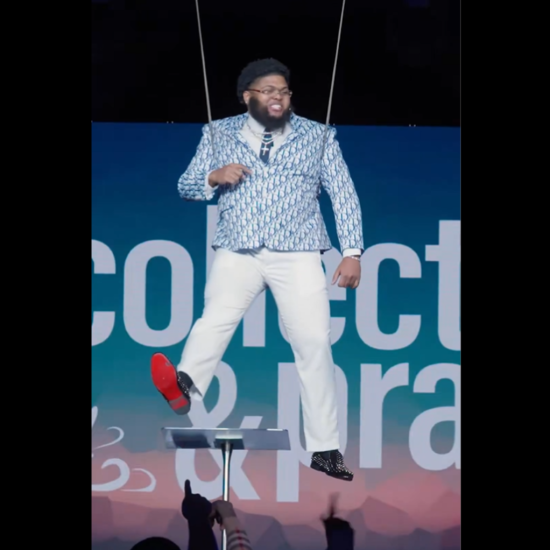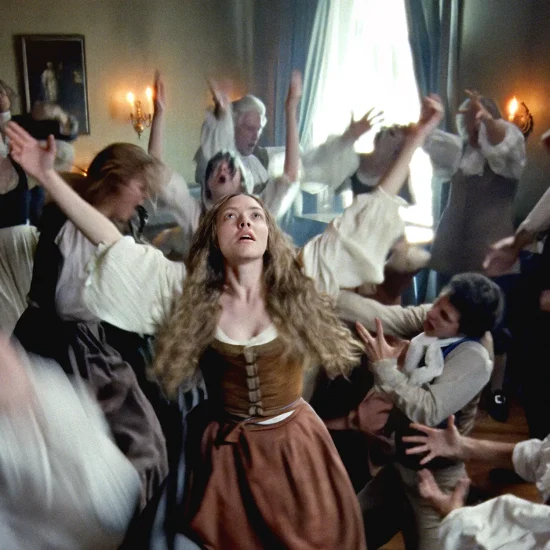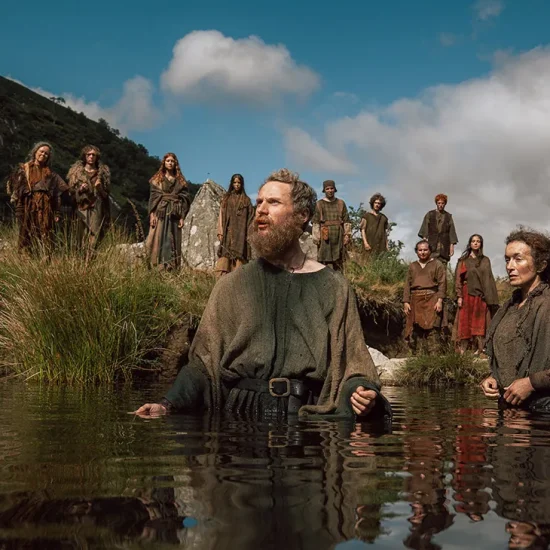
NOTE: This piece was originally published at our Substack newsletter A Public Witness.
It’s the time of year when many publications suggest good books you can enjoy during the summer, perhaps reading while tanning on the beach, relaxing in a hammock, or hiding from kids home on school break. So a couple of weeks ago, the Chicago Sun-Times published a list of 15 recommended books in a special section promising to be “Your Guide to the Best of Summer.” There was just one problem: Ten of the books on the list don’t actually exist!
The list included real authors but fake titles, complete with a brief synopsis. To be honest, a few of them sound interesting, so maybe the authors should work on those. Instead of Percival Everett’s 2025 Pulitzer Prize-winning book James, the list instead recommended the nonexistent “The Rainmakers” allegedly by Everett and set in a “near-future American West where artificially induced rain has become a luxury commodity.” Similarly, the list lauded “Tidewater Dreams” as the “first climate fiction novel” from Isabel Allende, an acclaimed Chilean author. Why settle for reading ordinary fiction when you can pretend to read fake novels?
The person who compiled the list later admitted he used AI for it. The Sun-Times promised to investigate how such AI slop, which was created by someone who doesn’t even work for the Sun-Times, snuck past editors and made it into print. One possible contributing factor is the list showed up two months after 20% of the paper’s staff accepted buyouts from the publisher amid fiscal problems. Thinking AI can replace actual writers and editors is a truly fictitious plot.
Mark Jacob, the former Sunday editor of the Sun-Times who now writes the Stop the Presses e-newsletter, told Axios in response to the fake book list that AI is dangerous “since it’s so easy for lazy and sloppy people to create bad content.”
“What should legitimate media learn from this?” Jacob added. “Hire trusted human beings to produce content, and carefully review any content that’s going out under your brand.”
So as we publish our fourth annual list of recommended books for summer reading, we want to assure you we are real people suggesting real books that you can actually buy or grab from your local library. We’ve once again asked several Word&Way writers to offer two books perfect for wherever you find your real happy place this summer.

Some Recommended Books
Brian Kaylor, coauthor of Baptizing America:
The Cellist of Sarajevo by Steven Galloway. A real-life person inspired this novel. During the deadly siege of Sarajevo in the early 1990s, a mortar attack killed 22 people as they stood in line for food. Local cellist Vedran Smailović responded by showing up in the ruins of that spot in a public square for 22 days to play Albinoni’s “Adagio in G Minor.” Galloway’s unnamed cellist engages in that same series of haunting public performances as more mortar blasts and sniper shots ring out. But Galloway focuses his narration on other characters trying to survive in their city-turned-warzone. Each of them eventually finds themselves in the presence of the cellist and his music. Through the engaging narratives and sharp writing, we peek in on musings about violence, humanity, commitments to neighbors, and, of course, the power of music and hope.
The King David Report by Stefan Heym. At the age of 20, Jewish antifascist activist Heym fled Germany. He eventually returned to East Germany in 1953, having left the U.S. to avoid investigation by Sen. Joseph McCarthy. Initially welcomed back by the communist regime, Heym soon found himself running afoul of government censors who didn’t like the novels he wrote. Those experiences of facing government persecution and censorship in multiple contexts informed his satirical retelling of biblical events. Ethan the Scribe is tasked by King Solomon to write an official account of David’s life and reign. But since this request comes from the subject’s son who now sits on the royal throne, Ethan quickly finds himself in a difficult position: Does he write a glowing tribute to the king’s father or tell the real stories about a man who lied, plundered, and seduced his way to power? This humorous novel is a fascinating take on familiar biblical stories. But just as Arthur Miller’s The Crucible is less about colonial Massachusetts Bay and more about McCarthyism, Heym’s novel is really about modern regimes as he explores the difficulty of telling the truth in an authoritarian state.
- Sarah Blackwell, author of God is Here:
Sacred Self-Care: Daily Practices for Nurturing Our Whole Selves by Chanequa Walker-Barnes. For many of us, summer means a bit slower pace and more time in nature as the daylight lingers long after working hours. It is a great time of year to partake in some self-care and develop new habits and rhythms to carry into the more hectic seasons of life. This book by Walker-Barnes is a devotional full of short practices we can undertake to deepen our spiritual lives and restore our mind, body, and soul. She rightly assesses so many of the struggles we face today, and her down-to-earth writing is both comforting and challenging. This is a great read for a group that meets weekly since the final day of each week includes a short worship that could be done together.
Remarkable Creatures by Tracy Chevalier & Remarkably Bright Creatures by Shelby Van Pelt. This past December, my husband asked for a Christmas list, and I said, “Oh, I’d like that remarkable creatures book.” I meant the new book Remarkably Bright Creatures about the relationship between a cleaning woman at an aquarium and an escape artist octopus, not realizing that there was an older book called Remarkable Creatures, which found its way wrapped and under my Christmas tree. It turns out that it was a serendipitous misunderstanding in that these particular remarkable creatures included Mary Anning, a young working-class teenager from the southern coast of England, who basically upended our understanding of the age of the Earth through her fossil discoveries (such as the first ichthyosaur). The theological implications of one woman’s work in discovering extinct species were immense and fascinating to contemplate. After reading the book, I got to see her fossils in the British Natural History Museum this spring. Both books have beautiful connections between humans and the created world — true beach reads!

- Beau Underwood, coauthor of Baptizing America:
Search: A Novel by Michelle Huneven. I’ve had a LOT of clergy friends recommend this book on social media or to me directly. It’s been sitting on my nightstand for some time awaiting my attention. This book follows the travails of a clergy search committee in a progressive congregation. I’m not sure if my ministerial colleagues have been excited about it because finally an author is giving their careers deserved attention or because they find that the novel is art imitating reality. My suspicion is both.
Migrant God: A Christian Vision for Immigrant Justice by Isaac Samuel Villegas. The reality that the immigration policy of the current administration in the United States stands in stark contrast to the gospel’s demands is obvious. What American Christians should do about it is harder to discern, given the power of the state and the political dynamics of the country. This book tackles this urgent topic in a way that is accessible for congregational education and, despite the challenging nature of our times, hopeful in its witness. It’s great to hear a fresh word from a respected, faithful voice about how Christians might meet this moment.
- Juliet Vedral
Finding Margaret Fuller by Allison Pataki. Margaret Fuller, the often overlooked Transcendentalist, was a friend and contemporary (and likely crush) of Ralph Waldo Emerson and Nathaniel Hawthorne (it is speculated that Hawthorne processed his feelings for Fuller in several of his works, including The Scarlet Letter and The Blithedale Romance). Historical fiction writer Allison Pataki does a phenomenal job of bringing Fuller and her contemporaries to life in Finding Margaret Fuller. Because she died at sea at the young age of 40, so many of Fuller’s accomplishments have been lost to time. Did you know that at the age of 26 she was considered one of the most well-read people (not women) of New England? Fuller was a magazine editor and writer and one of the first female foreign correspondents. The novel brings Fuller and her friends to life in a way that will stick with you long after you’ve finished the book.
The Ministry of Time by Kaliane Bradley. The protagonist of this book is a nameless British civil servant who has been recruited by the newly formed Ministry of Time to help an “expat” (a time traveler from the 19th century) adapt to contemporary British life. The novel is a charming mix of science fiction/time travel, cross-cultural romance, and workplace comedy all in one. After I finished the book (in just a couple of days, it was hard to put down), I discovered to my delight, that the author had begun the novel as fan-fiction based on the AMC drama The Terror. If you want to be immersed in a world of time travel and history, this book is for you.

- Jeremy Fuzy
Woodworking by Emily St. James. Penned by one of my favorite cultural critics who recently began writing for the Emmy-nominated television show Yellowjackets, this debut novel takes us to the rural upper Midwest where a high school teacher’s life is thrown into chaos when a trans student attends her school. Ms. Skyberg would prefer not to confront the reality that she, too, is trans. This book captures the cultural specificities of a small-town conservative Christian world while also serving as a deep reflection on how we all reshape our identities at different points in our lives — and how this intersects with the complexities of our chosen and non-chosen families. St. James even puts inventive literary significance behind things like pronoun use, dissociation, and dead-naming. By the time you reach the end, you will be so glad you met foul-mouthed teen Abigail, who tries to bury her good-hearted nature beneath an erratic and caustic surface. The reality of contemporary politics is woven into the background, but this book is not a political treatise. It is an exploration of unlikely friendships, what it means to be a human living in community, and the power behind truly seeing and trusting someone else.
Turning to Birds: The Power and Beauty of Noticing by Lili Taylor. Growing up, I always thought of birdwatching as a hobby for older people. But I guess time caught up with me. This book is definitely not a traditional guide to identifying birds but rather a series of essays reflecting on how the practice of paying attention to these “flying dinosaurs” can be a powerful way to connect with other aspects of the natural world, as well as meditate on our place in it. While taking a break from her prolific acting career, Taylor turned her eyes and her ears toward being mindful of her surroundings. And she makes a compelling case that if only we take the time to observe it, this parallel world can inject our lives with unexpected wonder and joy. So whether I’m floating a river in the Missouri Ozarks or walking around my neighborhood in Midtown Kansas City, I will never see fluttering wings or hear chirps the same way again.
- Kristel Clayville
Grief is for People by Sloane Crosley. In this memoir, Sloane Crosley explores the disorientation of grief through two seemingly disparate experiences: losing her grandmother’s jewelry to theft and losing her closest friend to suicide. For the former, she takes on the role of detective and hunts down a portion of the jewelry she has lost; for the latter, she turns some of the same investigative questions on Russell’s last days. Crosley’s descriptions and juxtapositions are darkly humorous without losing sight of the depth of her losses. With clarity and emotional intelligence, Crosley tackles questions about identity, legacy, and the illusions of control, all while retaining her signature humor. This book is not just a meditation on loss — it’s a nuanced portrait of human connection, and how love, laughter, and memory endure even in the face of absence.
Natural Causes: An Epidemic of Wellness, the Certainty of Dying, and Killing Ourselves to Live Longer by Barbara Ehrenreich. This book provides a sharp, provocative critique of the modern obsession with health, wellness, and the illusion that we can outwit death through lifestyle, medical testing, and relentless self-optimization. Drawing from science, philosophy, and personal experience, Ehrenreich — who holds a Ph.D. in cellular immunology — challenges the belief that we can control our fate through diet, exercise, and routine screenings. She questions the efficacy and ethics of preventive medicine, the booming wellness industry, and the cultural delusion that death is a kind of personal failure. With incisive wit and intellectual rigor, she exposes how fear of mortality drives an often irrational quest for longevity, fueled by corporate profit and social pressure. But this is not a bleak book. It offers a liberating message: rather than exhaust ourselves trying to extend life at all costs, we might live more fully by embracing the unpredictable, sometimes chaotic nature of our bodies — and our mortality. Throughout, we get a dose of how religion is related to wellness and how it can help us cope with the inevitable.
Read On
With the variety of books we’ve compiled, we hope you’ll find a couple worth adding to your summer reading plans. And if you need more options, you could always look back at our 2022, 2023, and 2024 lists.
There are plenty of great books out there, so you shouldn’t need to ask AI to make one up for you!
As a public witness,
Brian Kaylor & Jeremy Fuzy






